Legal Analysis: Jenny and Penny's Contract and Parole Evidence Rule
VerifiedAdded on 2023/06/09
|6
|729
|338
Case Study
AI Summary
This case study examines a contractual dispute between Jenny and Penny, focusing on whether Jenny is obligated to send sample dresses to Penny. The analysis centers on the parole evidence rule, which generally prevents parties from introducing extrinsic evidence to alter the terms of a fully integrated written contract. Referencing Codelfa Construction Pty Ltd v State Rail Authority of NSW [1982] HCA 24, the study explains that the parole evidence rule excludes pre-contractual negotiations and agreements not included in the final written contract, unless the contract is defective or ambiguous. In this specific scenario, the contract between Jenny and Penny did not mention the provision of sample dresses. Therefore, based on the parole evidence rule, the study concludes that Jenny is not obligated to send the samples to Penny, as her obligations are defined solely by the terms outlined in the written contract to which both parties consented. Desklib provides access to a wide array of solved assignments and study resources for students.
1 out of 6
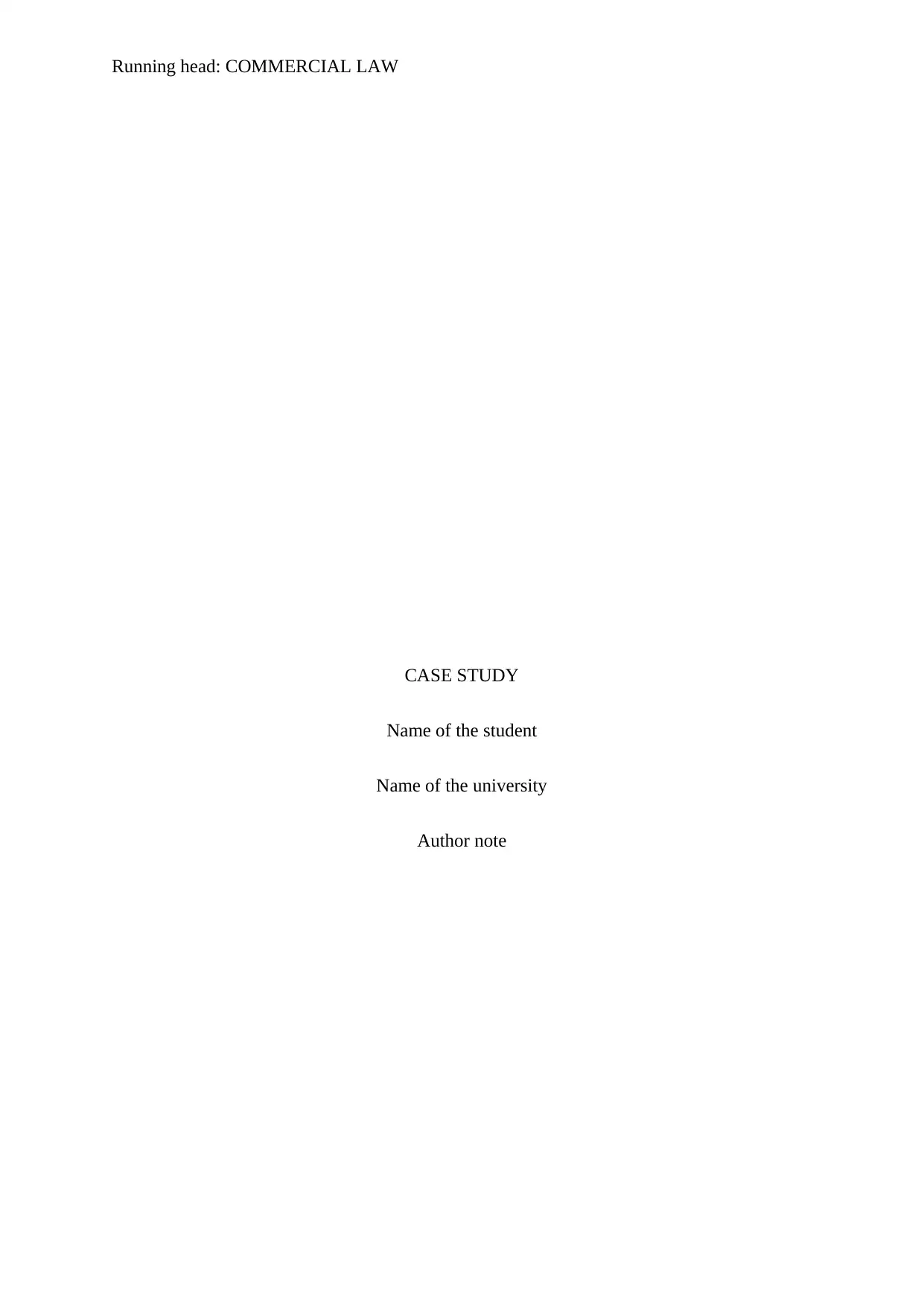
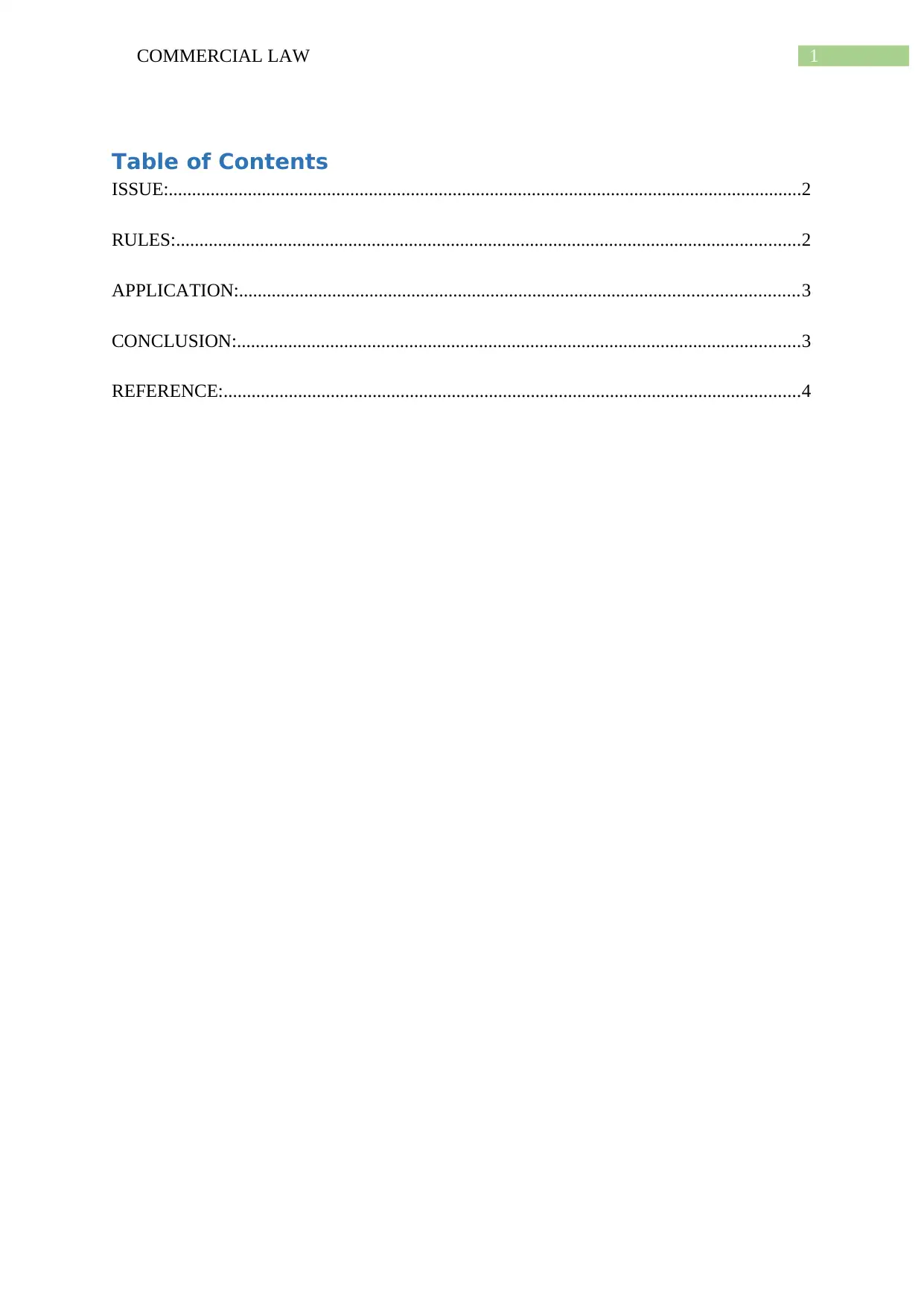
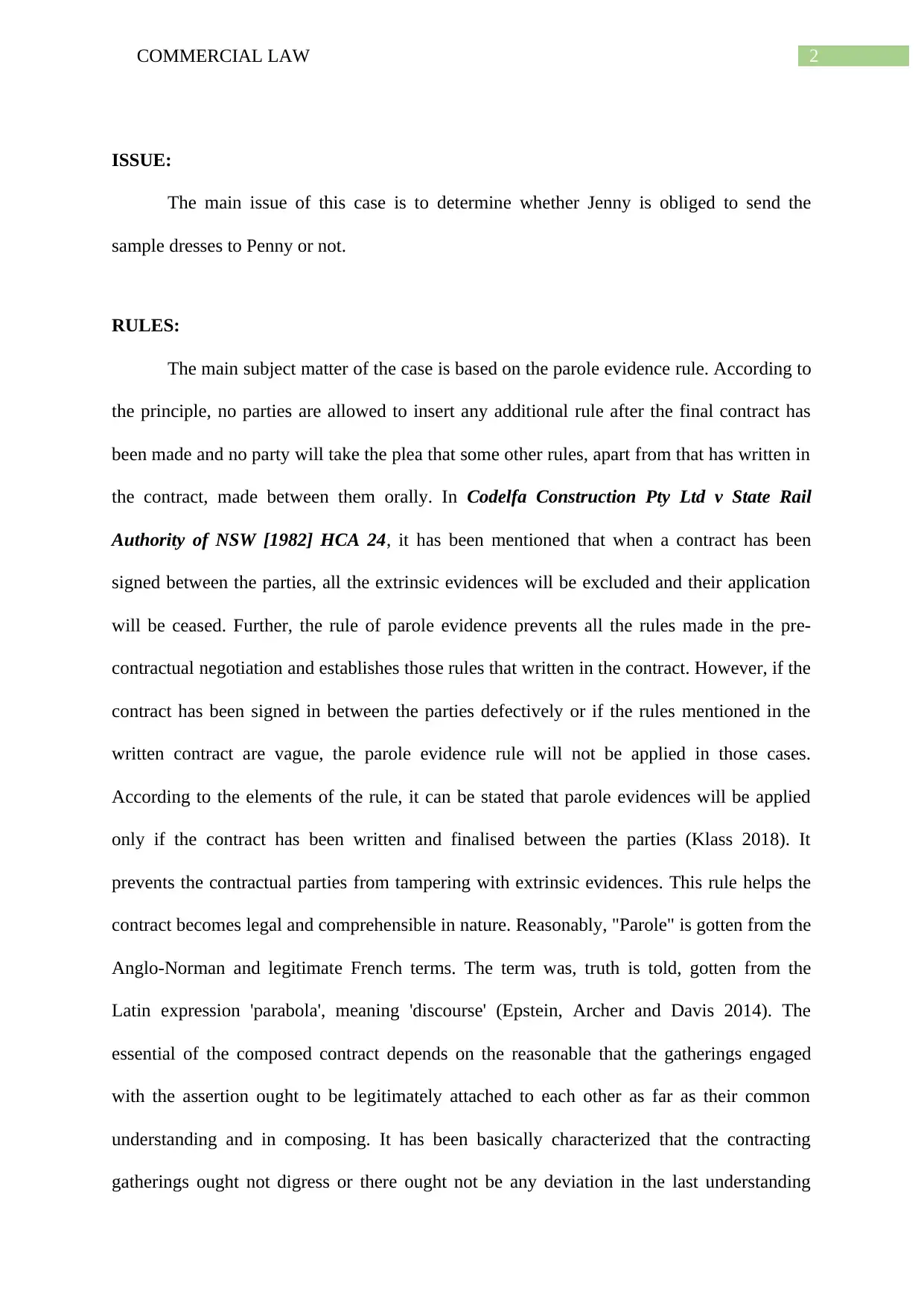

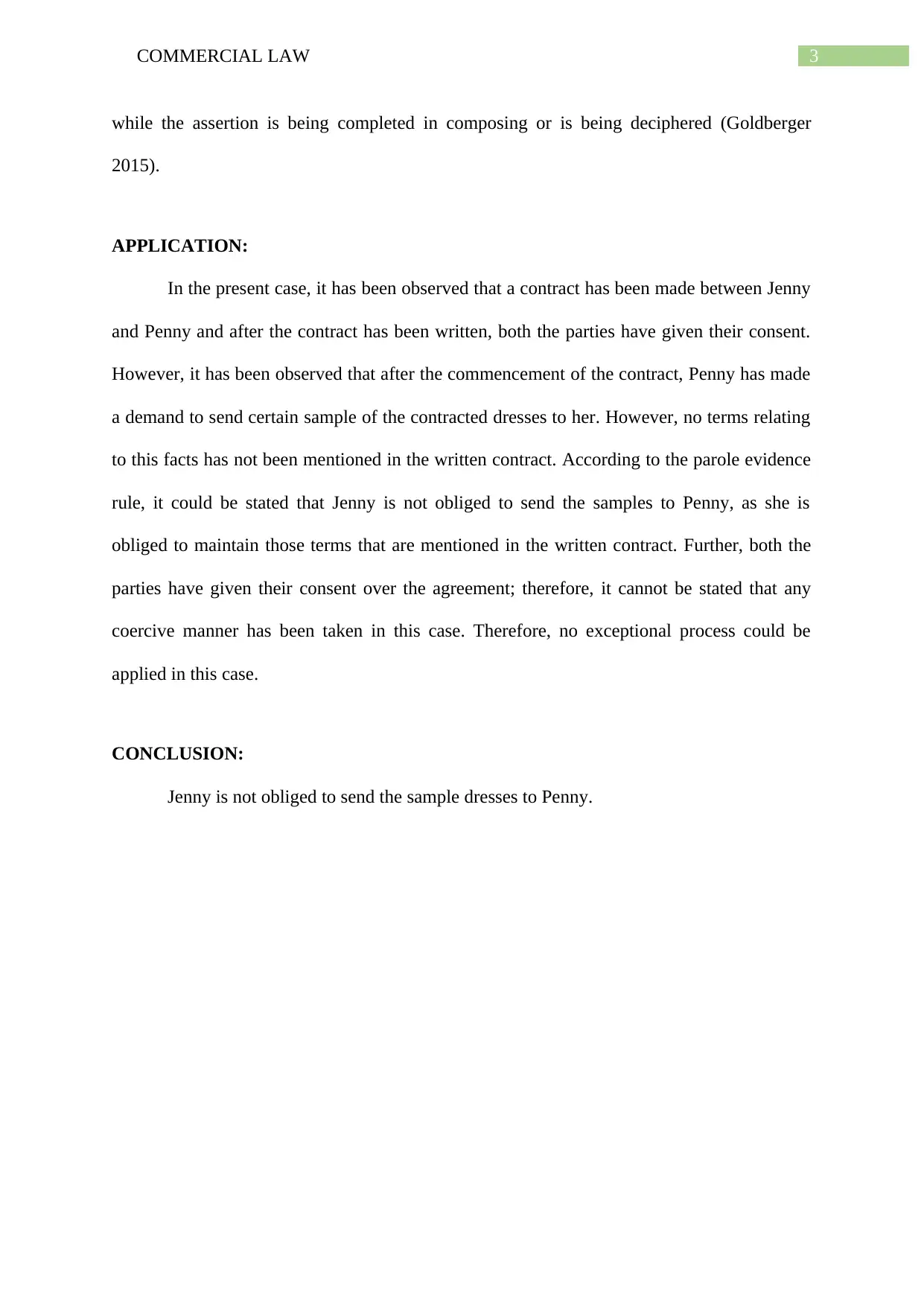
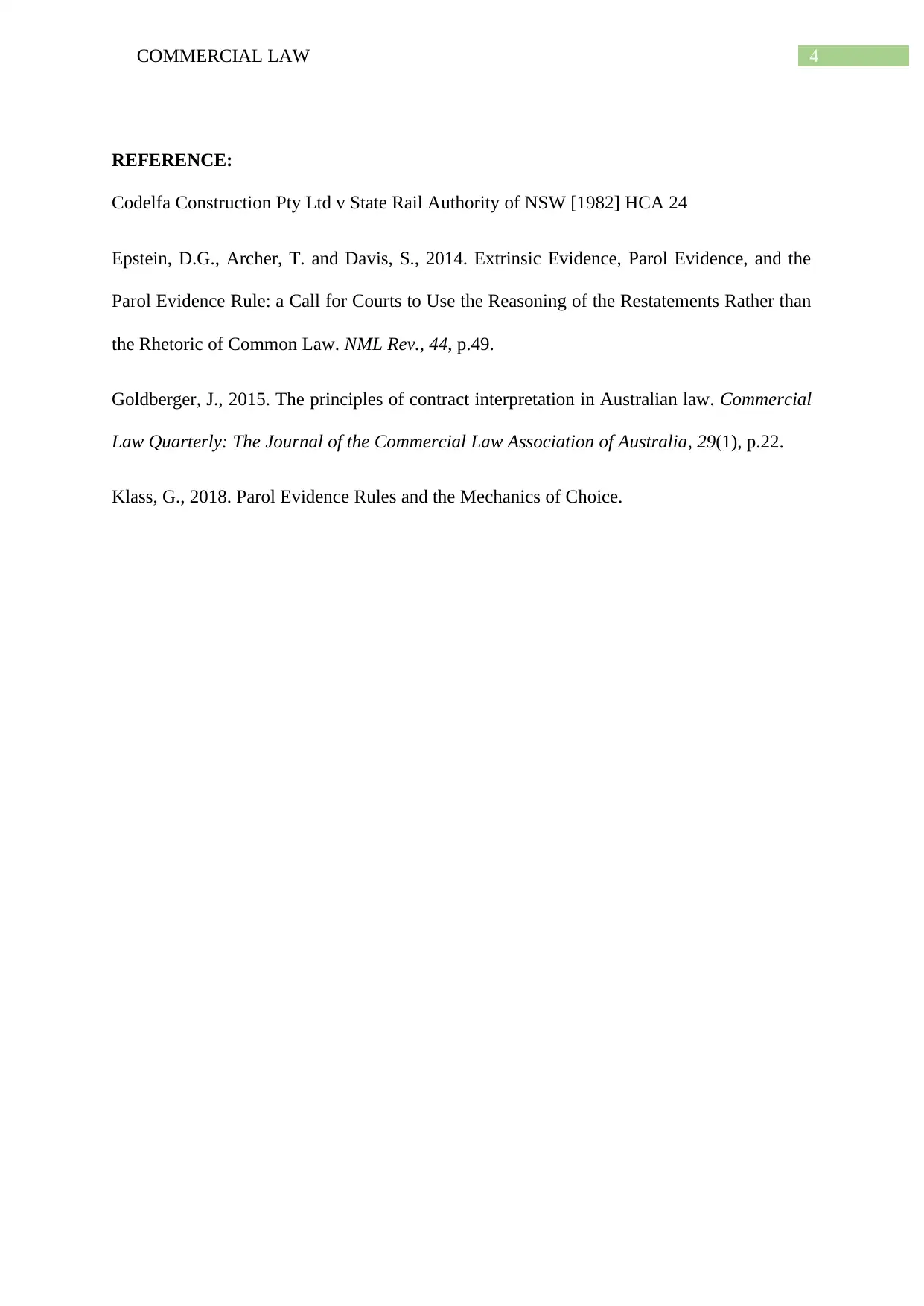






![[object Object]](/_next/static/media/star-bottom.7253800d.svg)